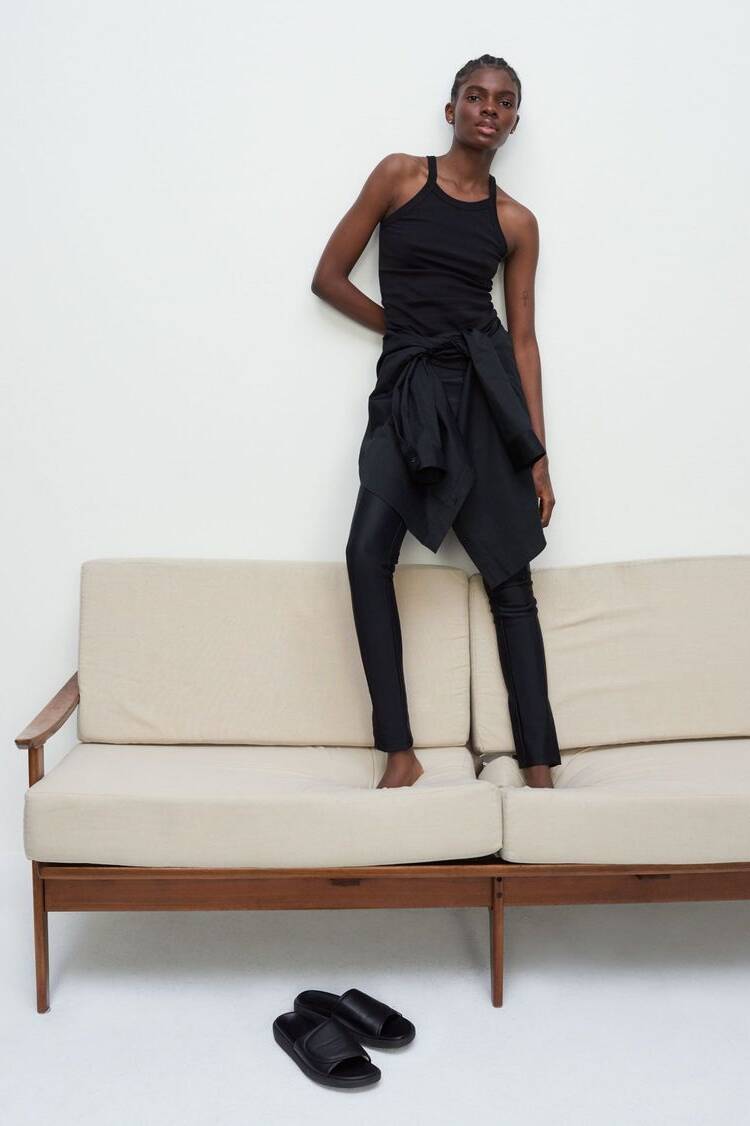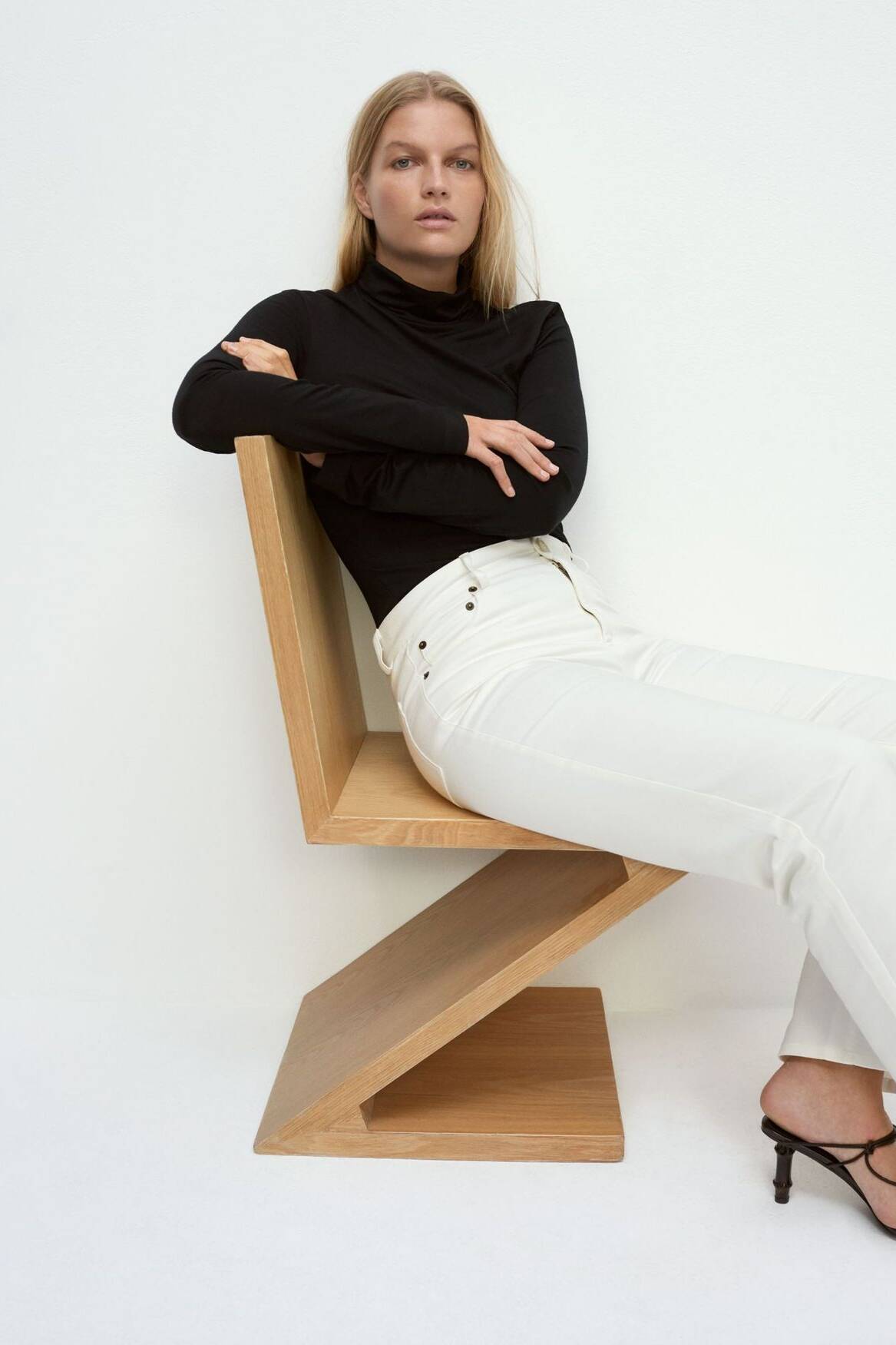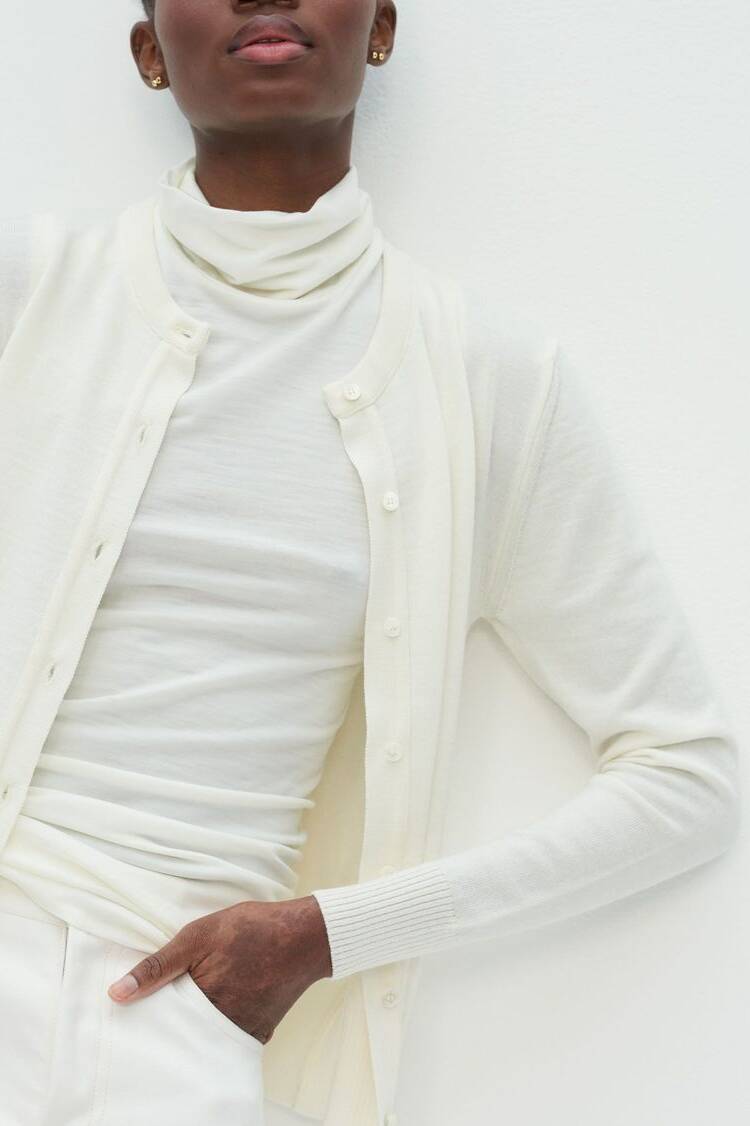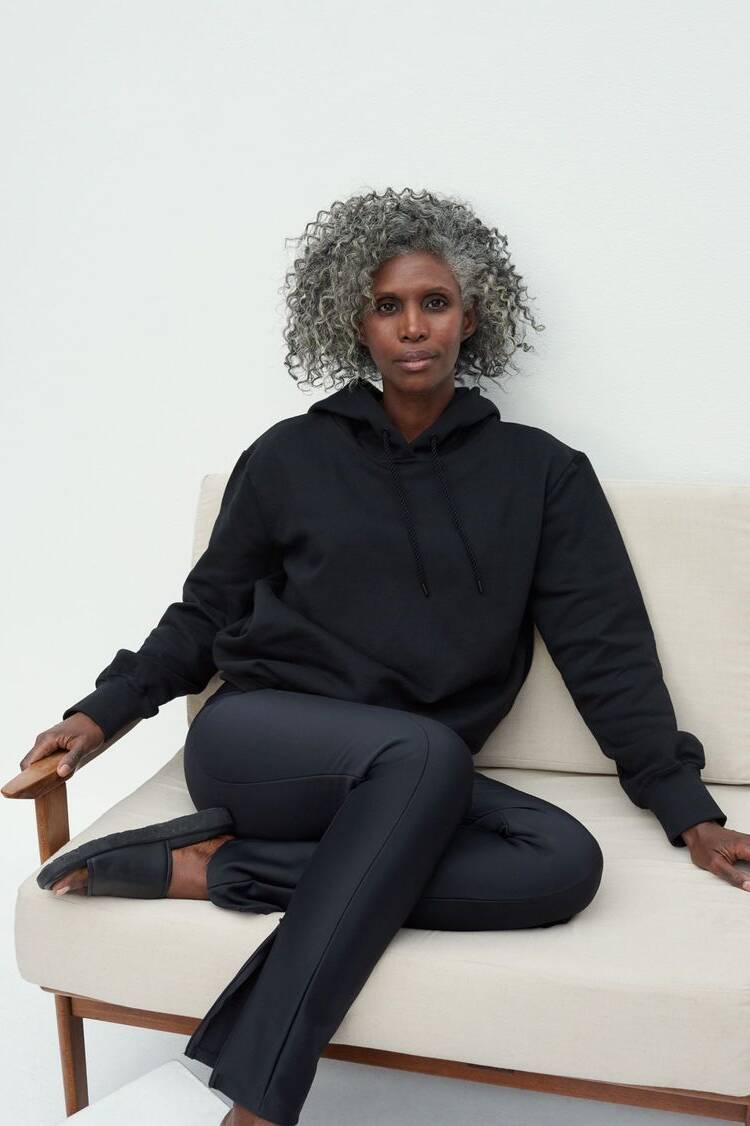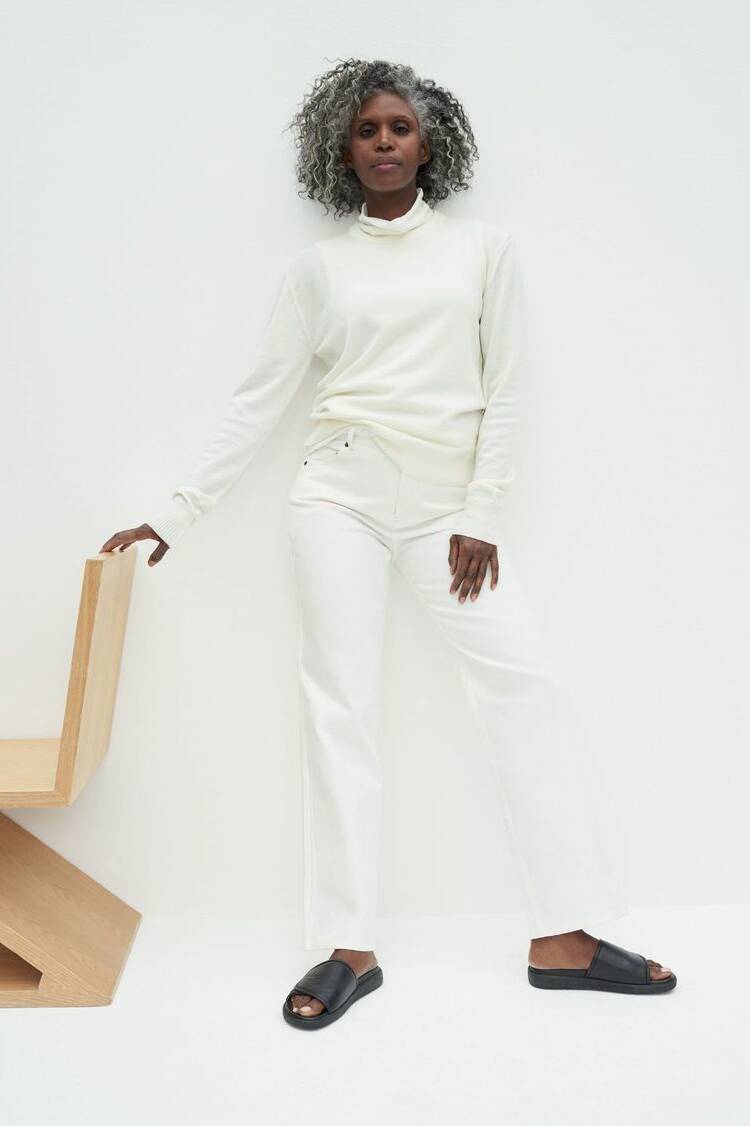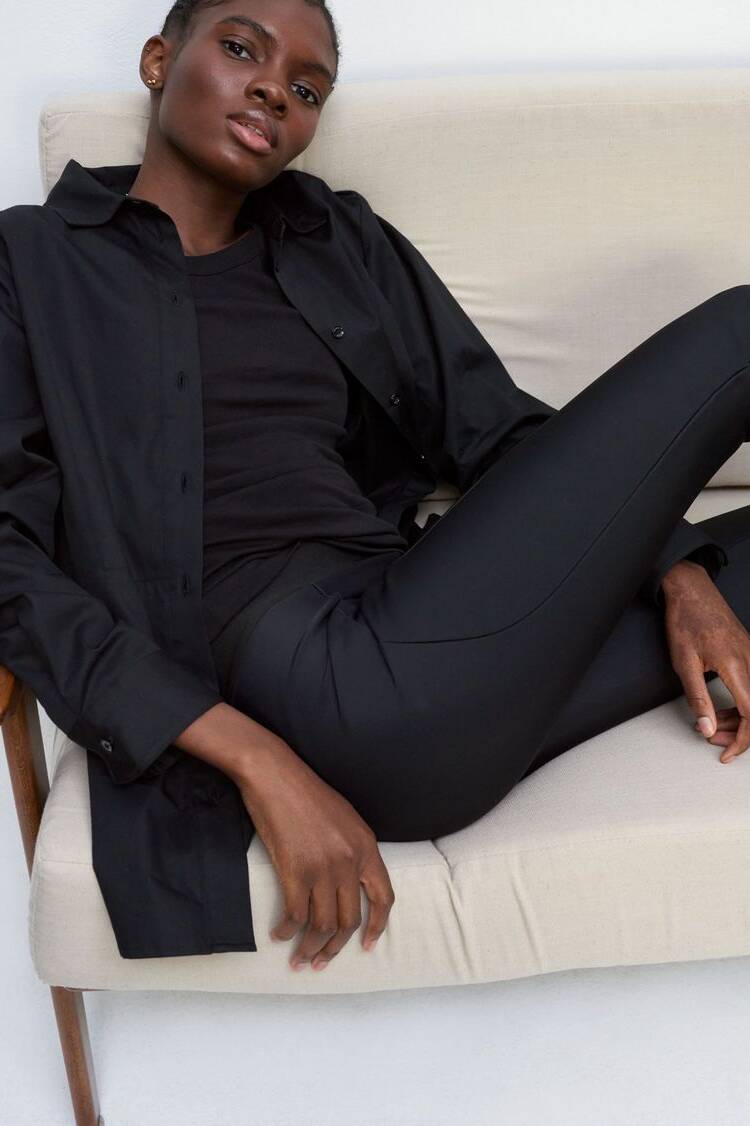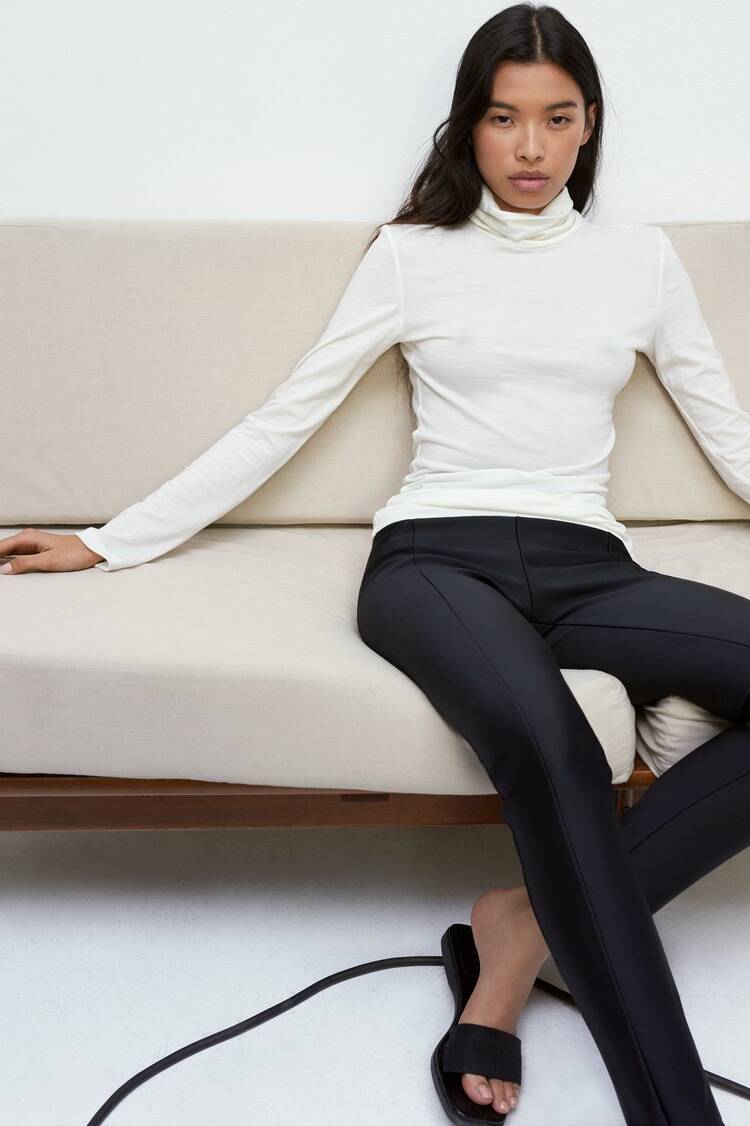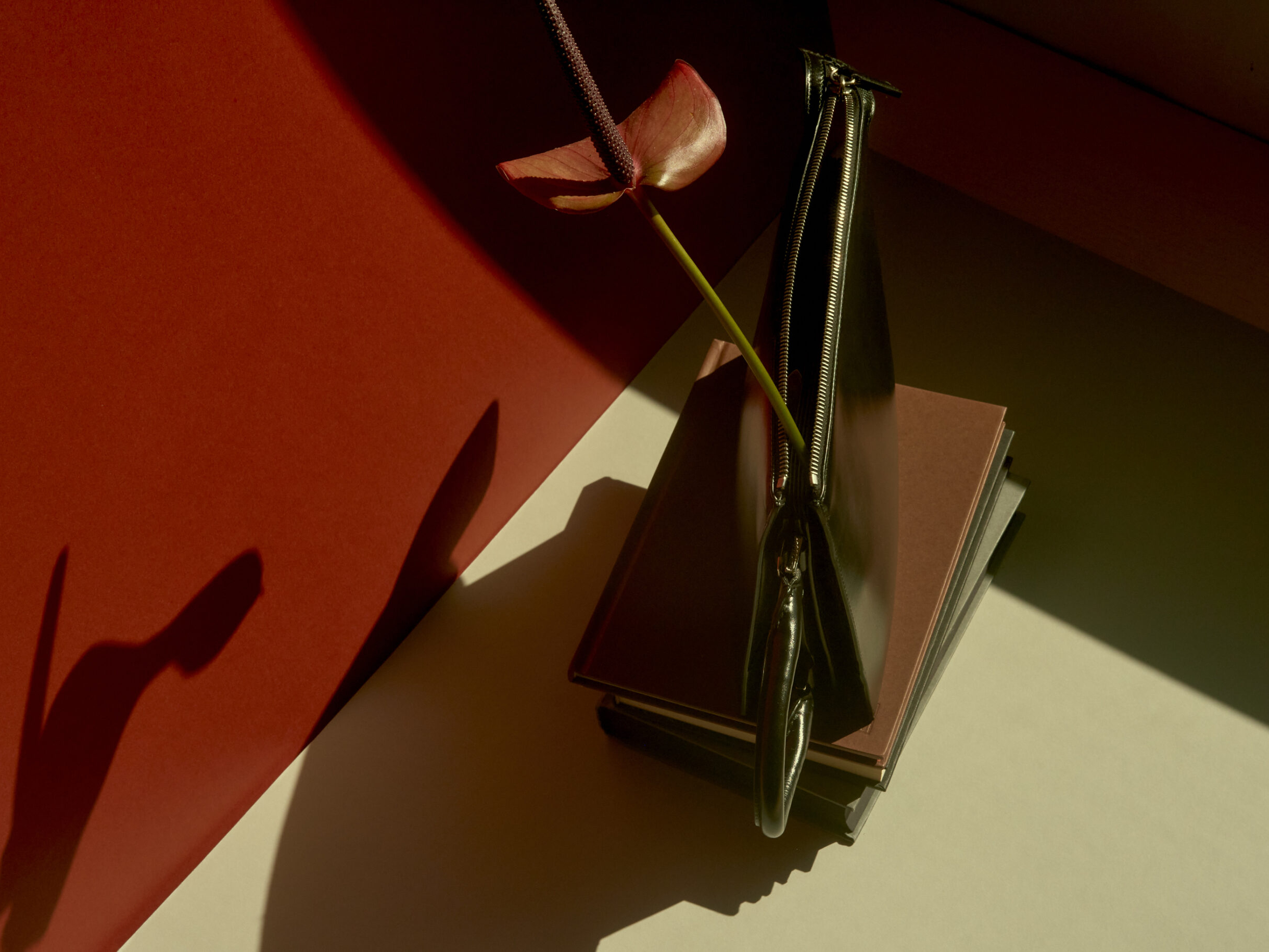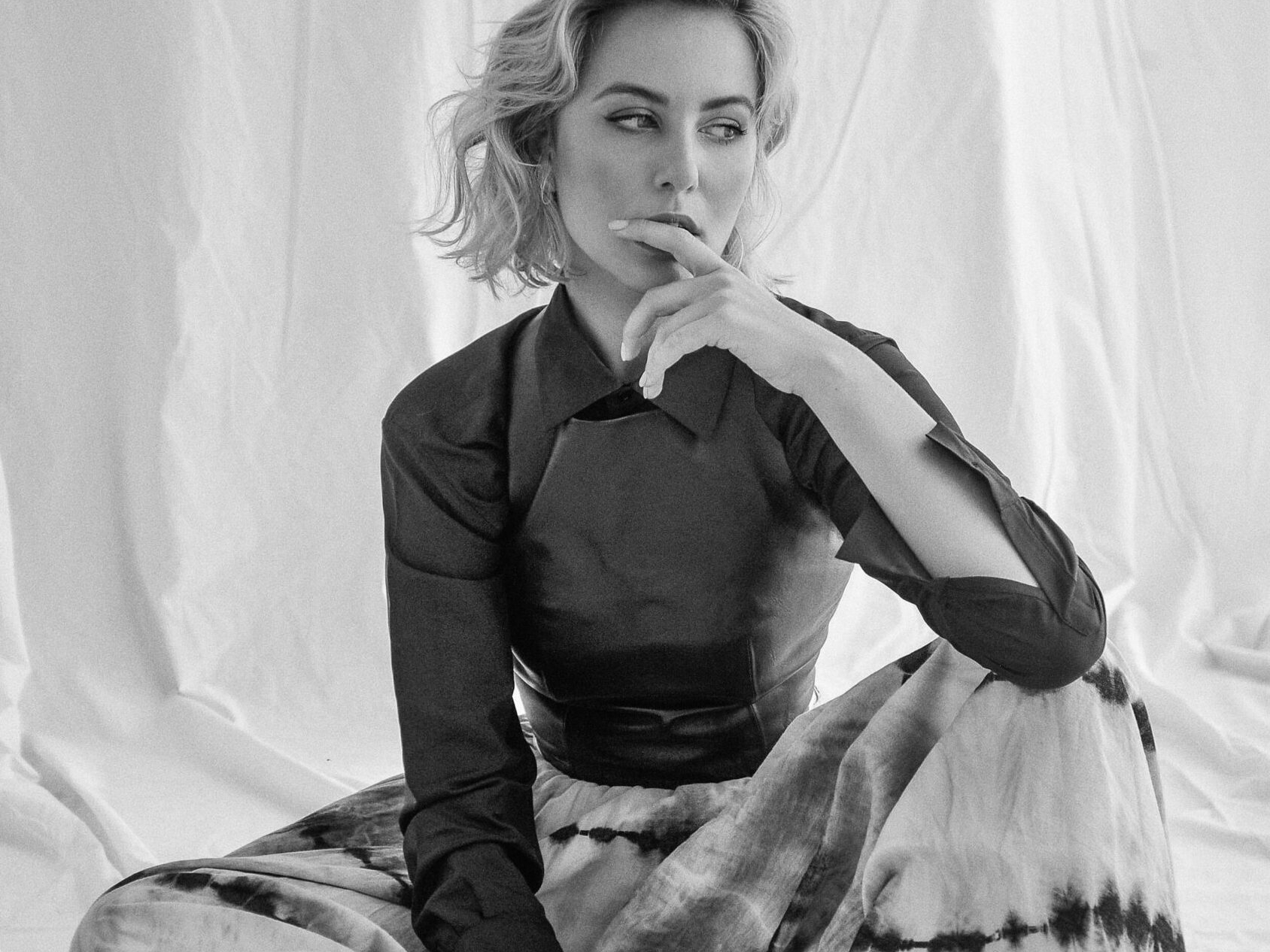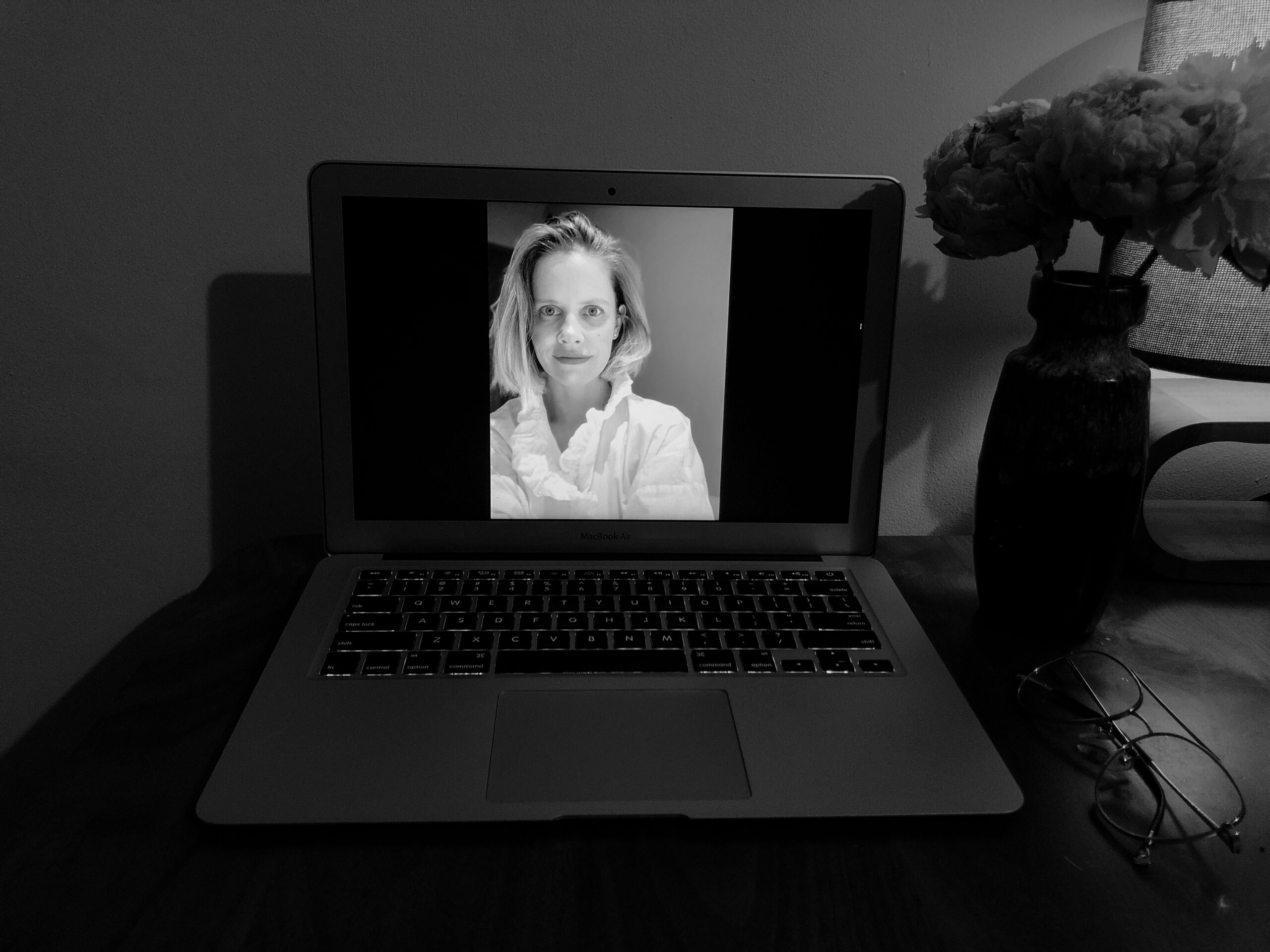We are living in an extraordinary time as the Coronavirus crisis continues to impact the world.
Here, in the beginning of a new dialogue with top creatives, we come together – online – with those who truly move us, inspiring us to change the way we think whilst reimagining our work models for the future. In the first of this series, meet Maggie Hewitt, founder of the New Zealand-based label Maggie Marilyn. With the fashion wheel slowly shifting its focus towards more ethical and sustainable practises, a new generation of designers are leading the cause and Hewitt is certainly a shining beacon among them. Her “circular” collections are literally recycling fashion’s past while shaking up the system – and her optimism is rallying.
"I really am driven by the idea that, even outside of this crisis, we have a planet that’s wounded, and that’s what our business fundamentally stands for, the idea of making a product in a better way."
Maggie Hewitt
"I really am driven by the idea that, even outside of this crisis, we have a planet that’s wounded, and that’s what our business fundamentally stands for, the idea of making a product in a better way."
Maggie Hewitt
UMENCO: The world has changed so radically, so dramatically since we last connected with you. How are you keeping up spirits, and how is the crisis impacting your brand right now?
Maggie Hewitt: Like everyone I’m feeling shell-shocked, it all happened so quickly, who could have told us, two or three weeks ago, that we would be in the position that we are in now? But I am also conscious of trying to be positive to get through this. I’m very fortunate that as a business we feel we are in a strong position, and a lot of that has to do with the Maggie Marilyn values. Then, in terms of fashion more broadly, I feel that perhaps one silver lining to come from this will be that consumers will feel quite differently when we come out of this and shop with greater care.
We are fortunate that we have been shifting the business to a more direct-to-consumer model, and further away from wholesale. It would be extremely challenging to be a brand that relies heavily on orders from retailers right now. Over the last eighteen months we have been building our direct-to-consumer business, which means we can have a direct line of communication with our customer, and so I feel really lucky that we have made some good decisions in the past months that have brought us to this point. We’ve also had an amazing response from our community which has been really inspiring and something you need to draw on at a time like this. Via Instagram and emails, people really want us to know how much they believe in the Maggie Marilyn, they’re telling us to keep going.
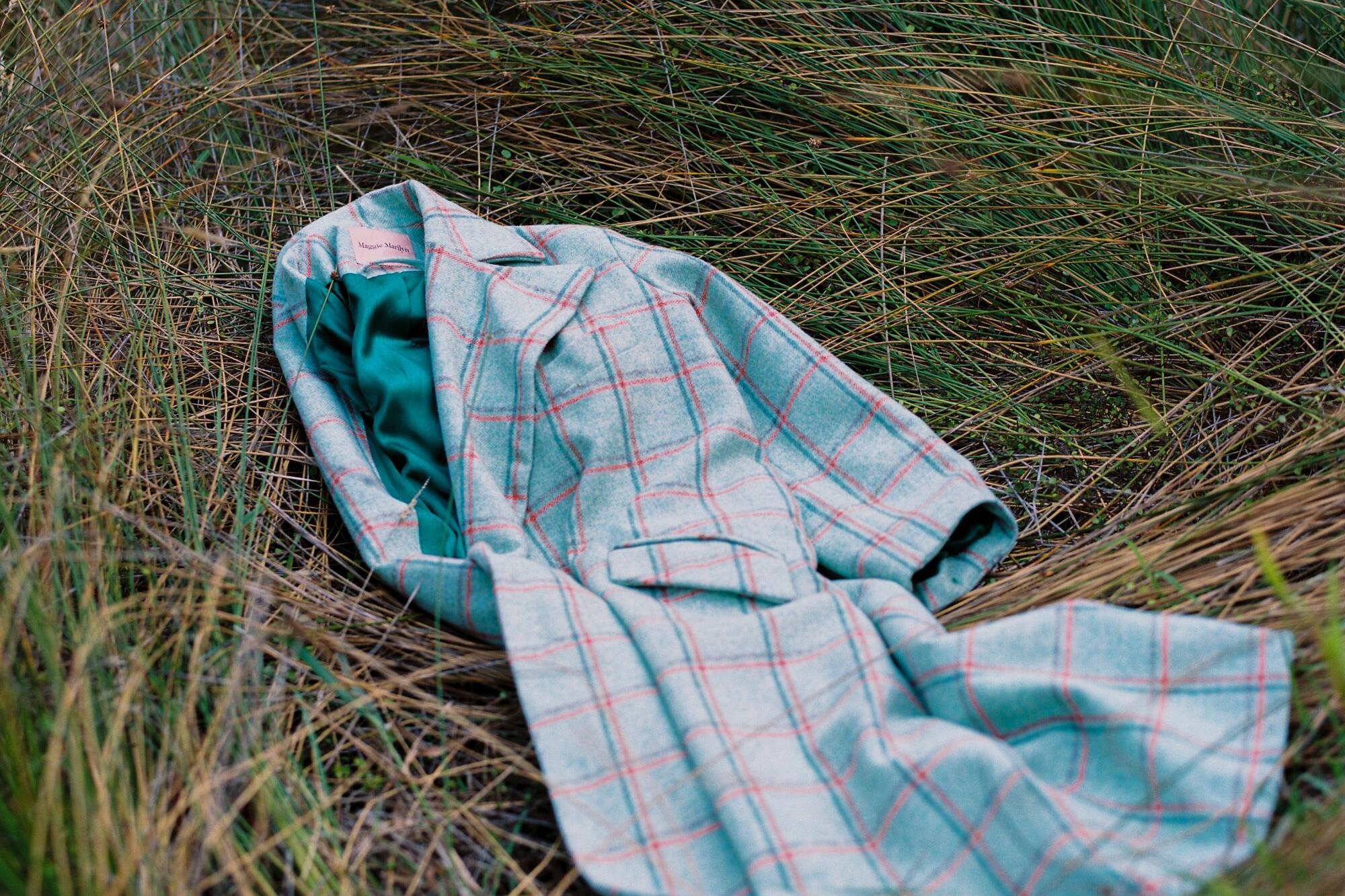
All images courtesy of Maggie Marilyn.
UMENCO: You are working from your home base in the Bay of Islands in New Zealand while your country is in lockdown. What does that mean for you at the moment, and how are you navigating your working week?
MH: I find the most frustrating thing as a company leader is that it’s about navigating your work day by day, it’s slow and it’s hard to forecast what’s next. Production is halted for the unforeseeable future, factories are closed, but at the same time we feel confident we can make it up when we’re back in action. In terms of our team, I’m making sure that we remain connected. We have a call every morning so that we all feel united and inspired by the greater purpose of what we’re working towards. It’s about not losing your nerve at a time like this and it’s more important than ever to stay optimistic. There’s no doubt in my mind that when we come out of this, and who knows how long that will be, that the world will be a different place, and I think customers will shop differently.
UMENCO: How are you analysing that idea? You’ve created one of those rare fashion brands that has such strong ethical values at its core – how do you move that philosophy forward?
MH: I think it’s more important than ever for us to be having conversations online with our audience. That’s difficult for a lot of brands. If you don’t have anything to talk about other than pushing new product then I think you’ll become obsolete. There has to be real sensitivity to your branding right now. I don’t think we want to see someone try to sell us a party dress on Instagram at the moment. So the question is how are you going to keep up that chain of communication at a time like this. We’re fortunate in that we’ve been able to tell our story in terms of its sustainability, its ethical, social and environmental values, while also highlighting the kindness that we want to represent as a brand. That has been a natural progression for us.
"Virtual showrooms might be an option but perhaps, even more importantly, it might be about reassessing the volume of production, the number of our seasonal collections and rethinking why we are encouraging greater consumption."
Maggie Hewitt
"Virtual showrooms might be an option but perhaps, even more importantly, it might be about reassessing the volume of production, the number of our seasonal collections and rethinking why we are encouraging greater consumption."
Maggie Hewitt
UMENCO: What are your thoughts on virtual showrooms moving forward? Do you think that technology will play a much greater role in the industry?
MH: It’s something we’ve definitely been thinking about for a while now. We have the resort season coming up at the end of June, we don’t understand where we will be at that point, but I think for me what will come out of this is not so much having to lean more on technology but rather a total rethink of our current business models in fashion. Brands will have to action those ideas when we come out of this in order to stay relevant – we need to ask, is the current wholesale model of sampling a range, going to New York, Paris, London, Milan and showing the clothes, putting it into production, and then it landing on a shop floor six months later relevant in today’s world? Virtual showrooms might be an option but perhaps, even more importantly, it might be about reassessing the volume of production, the number of our seasonal collections and rethinking why we are encouraging greater consumption.
UMENCO: So the question becomes more about how you can increase your profit – while producing less?
MH: Absolutely. It’s about creating clothing that is here to stay and moving away from discount culture and seasonal ideas. That has been such a problem for our industry for far too long.
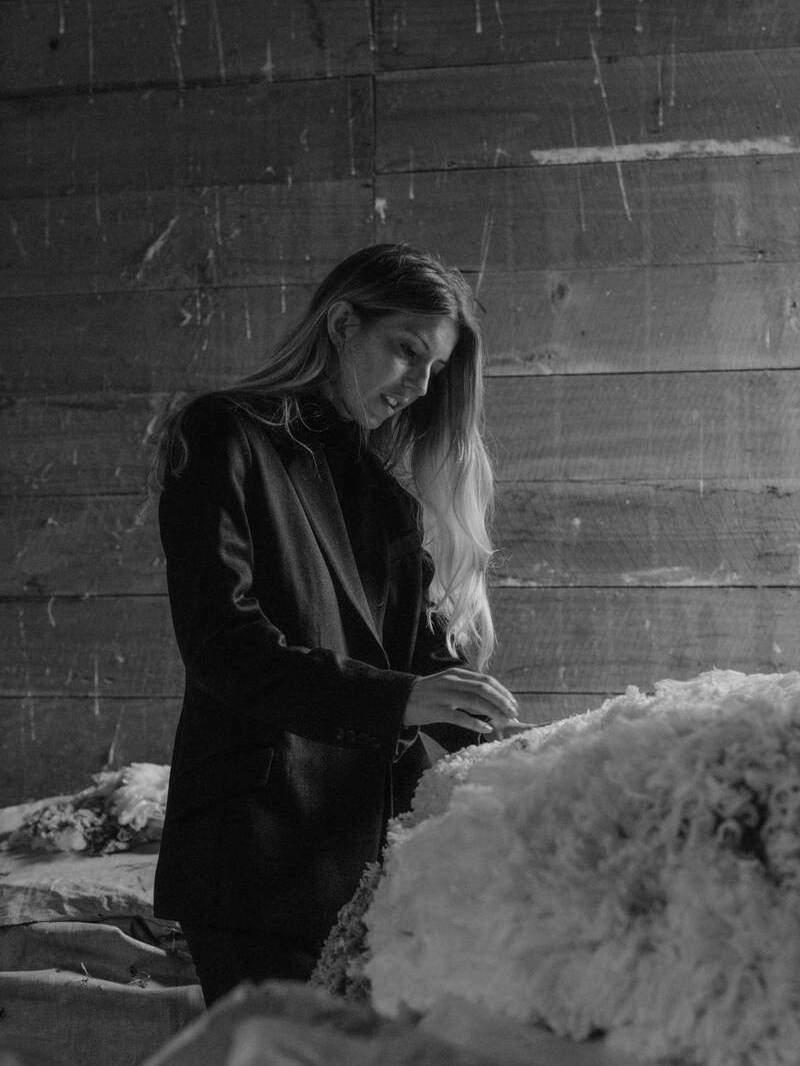
UMENCO: You are known for your tremendous work ethic, which has been the key to your success story. You also travelled a lot prior to the crisis and were exceptionally hands on with the brand internationally. How do you imagine that will change moving forward?
MH: I’ve never had my feet on the ground for this long, I definitely feel anxious about that. I’ve come to know the [traveling] life, and it feels very strange to have been in New Zealand for eight weeks now. Last year I was on a long-haul flight every two weeks – I’ve always believed in the power of building business relationships face to face. In all honesty, this new world is a huge adjustment for me in terms of technology, I’m not someone that uses video conferencing, I prefer to be in a room with my clients in order to communicate the story of Maggie Marilyn, I find it so much harder to convey that message via a Zoom call. I’ve always wanted to build a global brand and that never felt possible from the comforts of our office in New Zealand, but obviously now that idea is a work in progress and something I am having to figure out.
UMENCO: Your optimistic way of looking forward really does shine through across all facets of the business.
MH: I really am driven by the idea that, even outside of this crisis, we have a planet that’s wounded, and that’s what our business fundamentally stands for, the idea of making a product in a better way and that’s going to have to encompass how we grow as a global brand in the future. I’m on day four of self-isolation, I’m with my family in the Bay of Islands, and in all honesty I feel incredibly fortunate to be in a place near the ocean, I’m not cooped up. I think in some ways this forced reflection is a good thing and I’m all for constantly innovating our current business model and how we operate, so I’m excited to have more time to work on that.
UMENCO: In a strange way, does this also present an opportunity for you to go back to basics and take the time to think more creatively?
MH: The biggest thing that I complained about last year was my anxiety associated with the fact that I never had time to be creative. I was always on the go, pushing out collections, not really giving myself time to just breathe – in order to be creative, you have to actually stop and not be creative, at some point you have to clear your mind of everything. When I first started making Maggie Marilyn and I spent six months building my first collection, whereas now I spend six weeks. Who knows what magic might arise out of the next few months?
"I think the idea of what luxury means will change because we’ve been forced into this new way of living – it might not mean a new designer bag or a new coat, it might actually be as simple as a swim in the ocean or a walk along the beach."
Maggie Hewitt
"I think the idea of what luxury means will change because we’ve been forced into this new way of living – it might not mean a new designer bag or a new coat, it might actually be as simple as a swim in the ocean or a walk along the beach."
Maggie Hewitt
UMENCO: Do you think this might also make us change the way that we dress, the aesthetics of the pieces that we choose?
MH: I think so. From a design perspective, I’m rethinking everything, to be honest – our Somewhere line is very minimalist and our main line is very feminine and colourful and so I’m definitely thinking about what that might look like in the new future. I think on the whole people are going to want to dress more discreetly and I think people are also going to change how they consume – and how much they consume.
UMENCO: So what then do you imagine for the future of luxury?
MH: I think the idea of what luxury means will change because we’ve been forced into this new way of living – it might not mean a new designer bag or a new coat, it might actually be as simple as a swim in the ocean or a walk along the beach, to really embrace all our personal relationships. I think where fashion sits in that, the brands that are going to succeed, are the brands that are going to align with that new way of living.
Discover Somewhere by Maggie Marilyn
A collection of simple everyday basics, perfect for working from home.


